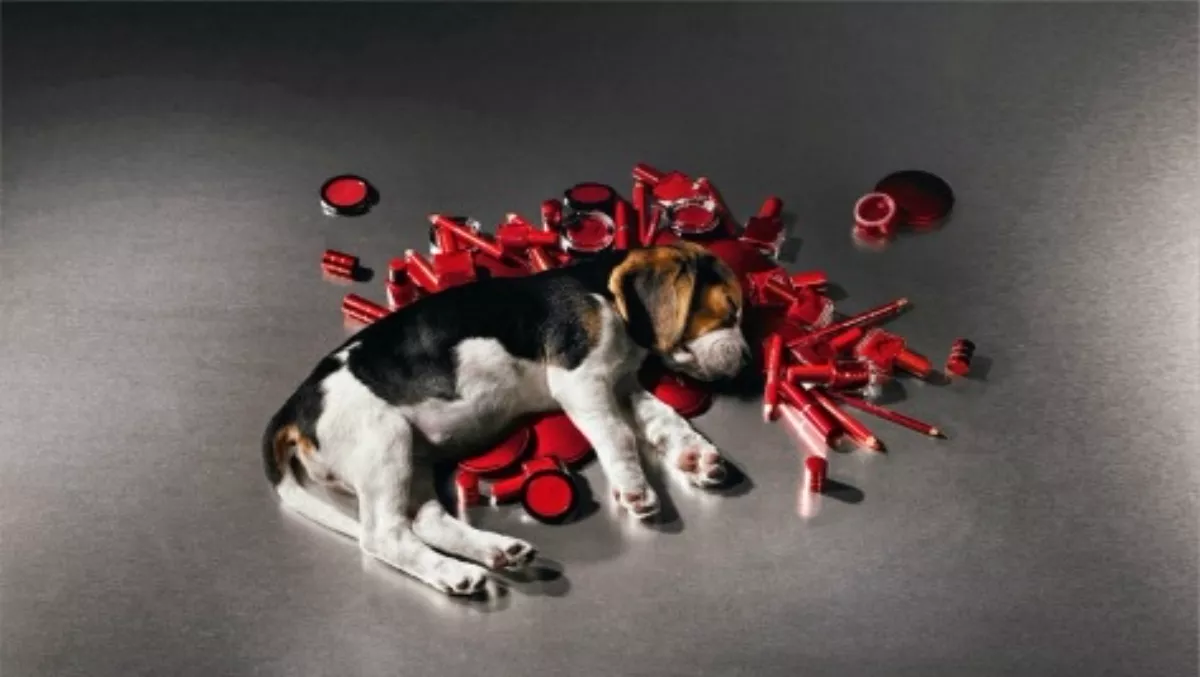
How Facebook helped the ban on cosmetics testing
Big news for animals yesterday when the government announced it would ban cosmetics testing on animals in New Zealand as part of the new Animal Welfare Act.
The ban is a huge milestone victory for cruelty free campaigners, including New Zealand animal advocacy charity SAFE, which has campaigned determinedly for the past three years.
"We're delighted the government has accepted that cosmetics testing on animals is abhorrent and should not be allowed. New Zealand has now joined the global move towards an end to these cruel tests," Mandy Carter, SAFE head of campaigns, says in a statement.
Cosmetics animal testing can include force-feeding animals with chemicals and restraining them so that chemicals can be dripped in their eyes. Testing methods used can result in severe pain and distress.
SAFE led a high-profile campaign, including presenting a 15,500-strong petition alongside actor Michelle Langstone, running a nationwide billboard and print advertising campaign calling on PM John Key to 'Hop To It', co-ordinating support from 28 cosmetics companies and submitting a detailed legislative proposal to the Government.
Netguide spoke to SAFE last year about the impact social media campaigning has on spreading its message. Following yesterday's victory, we wanted to know what role social media and online petitioning played in getting the government's attention on cosmetics testing.
Carter says SAFE began the conversation about banning cosmetic testing on animals in New Zealand about three years ago when the not-for-profit organisation launched the SAFEshopper website. SAFE urged its supporters to send e-cards directly to John Key asking him to ban testing. "He got a few thousand of those," Carter says.
SAFE also launched a petition to put extra pressure on the government, managing to get more than 92,000 signatures, the majority of which came from online. "Being able to use technology to further our campaigns has had a massive impact. Ten or twenty years ago we wouldn't have been able to do that," Carter says.
Carter says e-cards and online petitions have made it 'super easy' to raise awareness, as it gives people the ability to be proactive. "They are much more likely to take action because it is so simple," she says.
Since launching the SAFEshopper app last year, there have been a few thousand downloads. "[the ban] is only a ban on testing within New Zealand. That means that imported cosmetics are still potentially tested on animals abroad. So we still want to encourage people to use the app for overseas products.
Carter says Facebook has been the biggest help to spreading the cruelty-free message. Since announcing the ban yesterday on Facebook, SAFE's post has had more than 900,000 views since yesterday afternoon. "That shows the reach and how wide you can spread your aims via social media," Carter says.
Carter says online tools and social media were absolutely integral to getting the ban on cosmetic testing passed. "It enables us to spread our messages far and wide. Before Facebook we had to email supporters, it was far more convoluted. With Facebook you can get thousands of views in a matter of hours."
"For an MP to get thousands of emails via our e-card system shows them that people do really care about this and that they should take action. The ease of these tools really allows us to keep our momentum going."
Carter says an interesting thing to note is how things SAFE talks about on social media have become news story themselves. "Directly because of posts on Facebook. It's a new era of how to get information out there.
"It's really easy to go about our daily lives without thinking about it, but social media enables us to remind people to look out for the right products and shop smartly. It definitely helps spread our ideas amongst people who may have never thought about it before.
SAFE's Facebook following has doubled since this time last year, with over 40,000 followers. SAFE is the second largest animal page on Facebook in New Zealand following Paw Justice.
"With a ban on cosmetics testing in place, SAFE will now focus attention on achieving a ban on the import and sale of animal-tested cosmetics," Carter adds.


